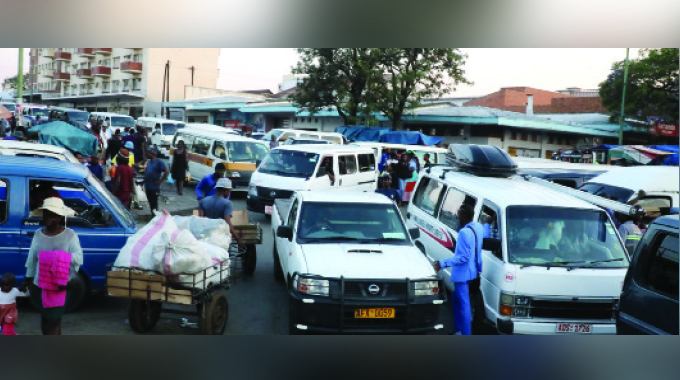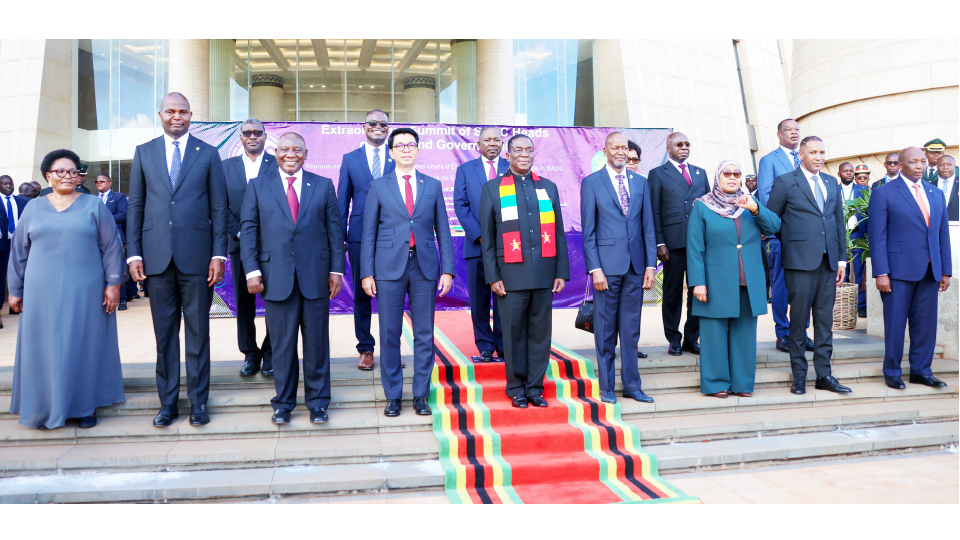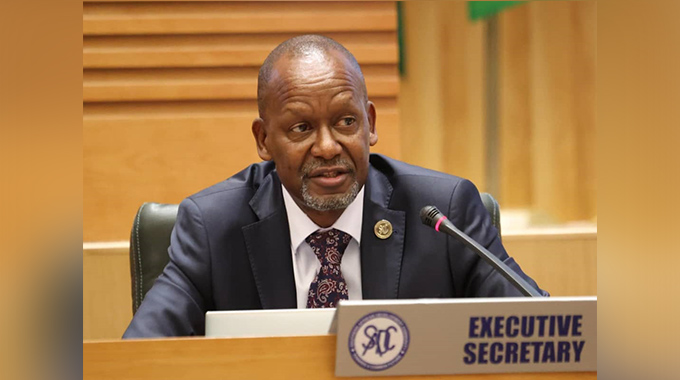
Herald Reporters
GOVERNMENT will soon announce a raft of measures to support the survival of the formal sector and ensure the informal sector complies with legal requirements such as tax compliance, Finance, Economic Development and Investment Promotion Minister Professor Mthuli Ncube has said.
This comes as retailers have raised concerns over the unregulated informal sector, which they argue offers goods at much lower prices, largely because it operates outside compliance with statutory obligations such as registration, taxes, licensing fees and labour laws.
In an interview in Harare yesterday, Prof Ncube said the reason why retailers were under pressure was due to increased informalisation of the economy, and rampant smuggling.
“So, the informal sector is really squeezing out the formal sector and as Government, we are going to embark on an accelerated programme to make sure that the informal sector complies with whatever requirements they should comply with — be it licensing requirements, be it payment of taxes, be it selling goods at properly designated areas; for example, where they ought to sell,” he said.
“So, compliance issues are a big issue in that sector. For instance, we need to come and formalise the informal sector so that it begins to behave in a manner similar to how the formal sector players are behaving.”
Apart from ensuring that the informal sector complies with the country’s laws, Prof Ncube said the Government has embarked on a blitz around the country’s borders to reduce smuggling which was also fuelling informalisation and making it harder for the formal sector to compete.
“We also stand ready as Government to support formal retailers for them to ride the storm and this fierce competition from the informal sector.
“We are doing everything we can; we will be announcing and implementing some measures to support the formal sector, but at the same time making sure the informal sector begins to comply with the tax, licensing and registration provisions that were put in place,” he said.
So far the Zimbabwe Revenue Authority (Zimra) has impounded goods valued at approximately US$2,4 million in a multi-agency operation targeting importers and cross-border transporters involved in smuggling and unethical business practices.
The operation has resulted in the seizure of dozens of vehicles, including cross-border buses and haulage trucks, and confiscation of illicit goods such as foodstuffs and second-hand clothes.
Meanwhile, Zimbabwe National Chamber of Commerce president Mr Tapiwa Karoro shared the same sentiments with Government, adding that there was a need to address economic pressures.
He said the implementation of measures which address disparities between the formal and informal sectors was welcome.
“The growth of the informal sector, where vendors often sell groceries in front of grocery stores and clothes outside established retailers like Edgars, undermines formal businesses.
“These informal traders operate with fewer regulatory and cost burdens, putting formal players at a competitive disadvantage,” Mr Karoro said.
ZNCC, he said, was advocating for a collaborative approach to addressing the existing challenges.
“Key policy recommendations include:- Liberalising the goods market and providing greater flexibility in the exchange rate to ensure fair competition; streamlining tax burdens and licensing requirements to reduce overhead costs for formal businesses.
“Others are tackling informality by creating incentives for formalisation and enforcing fair market practices, and improving access to affordable financing for businesses to sustain operations and support growth.
“Addressing these issues through constructive dialogue and co-ordinated action can help restore stability to the retail sector and the broader economy,” said the ZNCC president.










